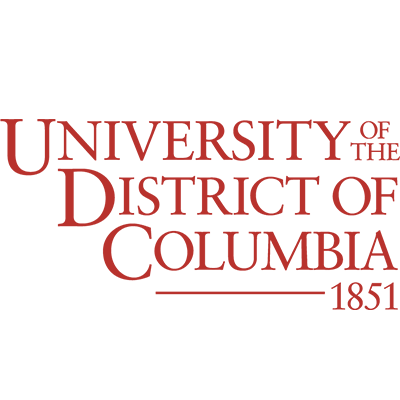This course develops a foundation of concepts and solutions that supports the planning, scheduling, controlling, resource allocation, and performance measurement activities required for successful completion of a project.

This course develops a foundation of concepts and solutions that supports the planning, scheduling, controlling, resource allocation, and performance measurement activities required for successful completion of a project.
The University of the District of Columbia is historic and modern, all at the same time. Public higher education in the District is rooted in the school for “colored girls” that Myrtilla Miner founded in 1851 in Washington, D.C., which came to be called the Miner Normal School.
Washington Normal School, a school for white girls established in 1873, was renamed Wilson Normal School in 1913, after James O. Wilson, Washington’s first superintendent of public schools.
In 1929, Congress enacted a statute that converted both normal schools into four-year teachers colleges. For several years, Miner Teachers College and Wilson Teachers College were the only institutions of public higher education in the city.
After the landmark U.S. Supreme Court school desegregation decision, Brown v. Board of Education (U.S. 1954), the two colleges merged in 1955 to form the District of Columbia Teachers College.
Over the next decade, D.C. residents petitioned for an expansion of higher education that would provide training for careers other than teaching. In 1966, Congress enacted the District of Columbia Public Education Act, which established Federal City College and Washington Technical Institute.
Although these schools were still very new, many Washingtonians continued to advocate for a comprehensive university.
The City Council authorized the consolidation of the three schools, and in 1976, began the monumental task of creating a new University of the District of Columbia. In 1977, under President Carter’s leadership, UDC began consolidating its academic programs.
These efforts culminated in the establishment of five colleges: Business and Public Management; Education and Human Ecology; Liberal and Fine Arts; Life Sciences; Physical Science, Engineering, and Technology; and University College and Continuing Education.
UDC continues to transform itself over time to meet the changing needs of its students and the community. The University currently offers 81 undergraduate and graduate academic degree programs through the following colleges and schools
Mission
Embracing its essence as a public historically black urban-focused land- grant university in the nation’s capital, UDC is dedicated to serving the needs of the community of the District of Columbia, and producing lifelong learners who are transformative leaders in the workforce, government, nonprofit sectors and beyond.
Vision
All students will achieve their highest levels of human potential.
Core Values
Excellence
Collaboration
Sustainability
Innovation
Integrity

Budgeting is more than entering numbers into a spreadsheet. Learn how to create your budget (your playbook) to become more impactful to those you serve.

In this section, we cover the basic aspects of budgeting and how budgeting benefits your progress toward attaining your desired lifestyle and reaching your financial goals.

PMP (Project Management Professional) certification training courses are designed to help individuals prepare for the PMP exam, a globally recognized credential for project managers. These courses provide the knowledge and skills required to manage and lead projects effectively, according to best p...

Unless you expect your organization to be stable in the short, medium and long term, you need to understand how to create long-term balance sheet and cash flow projections. Growing organizations must know whether they will have the resources to execute their business plan.

Budgets are the foundation of nonprofit finance and are vital to your organization’s strategic planning and management. Budgeting can seem overwhelming, but it doesn’t have to be.
© 2025 coursetakers.com All Rights Reserved. Terms and Conditions of use | Privacy Policy